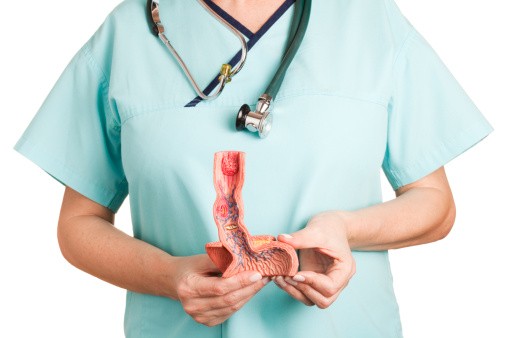Esophagus Cancer: Symptoms, Diagnosis & Treatment

What is Esophagus?
Esophagus is the uppermost food pipe which starts at the neck. It transports food to the stomach in the upper abdomen.
How does cancers develop in Esophagus?
Cancer develops like a mass that has uncontrolled growth, leading to blockage of the pipe. They are among the ten most common cancers of the body, and the exact cause is not known. Consumption of alcohol, smoking, and tobacco increases the risk of developing cancer by a factor of 100.
What are the symptoms of Esophagus Cancer?
The main symptoms are difficulty in swallowing food, which starts with solids and may progress over months till you can’t swallow even water, which is associated with weight loss and weakness. If you experience any difficulty in swallowing and that persists for more than 2 weeks, consult a doctor immediately.
How is it diagnosed?
Upper gastrointestinal endoscopy and biopsy are performed under sedation to confirm the diagnosis. The procedure is safe and requires 15 minutes. You might need to stay in the hospital for 4 hours. There are no long-term side effects. Performing a biopsy is safe and has nothing to do with cancer cell spread, which is often feared by some patients. Following the biopsy, you might need CT scans or PETCT scans, which are safe OPD procedures. It takes around 20 minutes, and the radiation exposure is well below permitted safe limits. This test gives information on the extent of the disease and can be used to plan further treatment.
How it is treated?
The primary treatment is surgery. A combination with chemotherapy and radiotherapy is often used to facilitate surgery and is offered based on the stage of the disease as detected on investigations. Early diagnosis makes the treatment simpler with better chances of cure, and it is therefore advisable to seek early medical help once you experience alarming symptoms.
How the surgery is performed?
Currently, the surgery (esophagectomy) is performed laparoscopically or thoracoscopically, where 3 to 4 small holes of 1 cm or less are created in the abdomen and chest as compared to conventional open surgery in the past. Modern day keyhole surgery causes much less pain, quicker post-surgery recovery and is safer. Robotic surgery adds further to it by making it more precise and minimising the chances of damage to adjacent organs. During surgery, the food pipe bearing the tumour is removed and food continuity is restored using the stomach. You may need to stay in the hospital for 7 to 8 days.
Is the treatment safe?
Yes, the various treatment options like surgery, chemotherapy, and radiotherapy have evolved to become more patient-friendly due to technological advancements and new chemotherapy medications. There are only temporary side effects that will be reversed within a span of weeks.
Will I be able to eat normally after surgery, what about my quality of life?
From the next day of surgery, you will be allowed to take liquids by mouth, and by the time of discharge, usually around the 8th or 9th day, most of the patients start taking a normal diet. Post-surgery complications may vary from leaks, chest infections, or voice changes, which are managed conservatively and rarely need re-operation. Almost 90% of patients attain a normal quality of life, eat normally, and return to work within a few weeks of surgery. Eating normally is a basic right and that can only be restored if esophagectomy is contemplated.
What can I do to prevent such lethal disease? Do my family members have risk of developing esophageal cancer?
Alcohol, smoking, and tobacco are the main lifestyle hazards that can increase the risk of the development of esophageal cancer and need to be avoided. These cancers usually do not have a familial preponderance. One needs to be vigilant and not ignore symptoms of swallowing difficulty and should seek early medical help to diagnose this deadly disease on time. That’s the mantra for long term survival.






